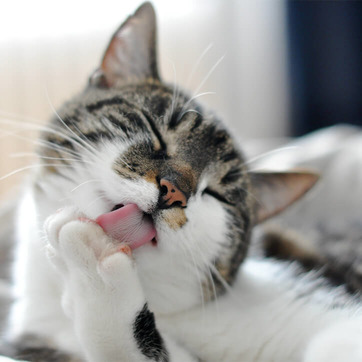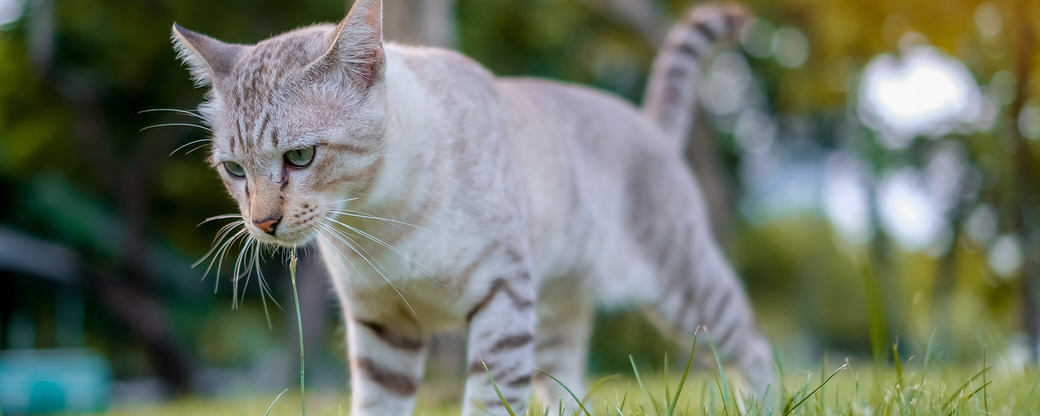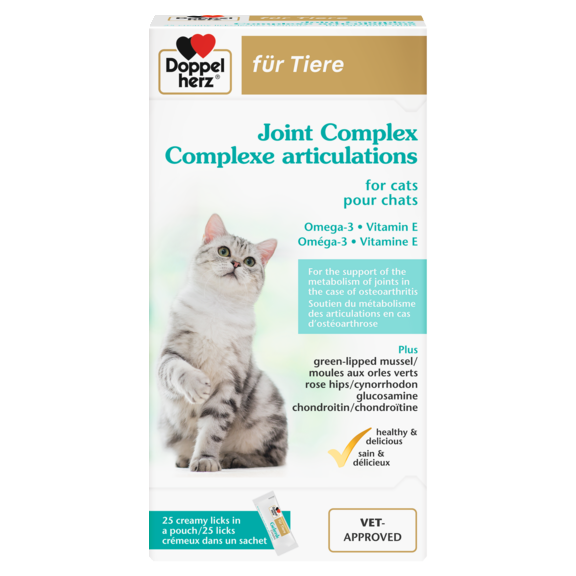Types of arthritis
Joint inflammation can have infectious and non-infectious causes. The triggers of infectious arthritis are pathogens such as bacteria, which can enter through injuries, bite wounds or other infection routes. Borrelia bacteria can also enter the joints via the bloodstream through a tick bite.
In contrast, in non-infectious arthritis, the immune system reacts, for example, to released cartilage particles. For example, the wear and tear of arthrosis always causes arthritis as well. Strains and bruises can also cause non-infectious arthritis in the affected joints.
Chronic rheumatoid arthritis is one of the immune-related types. Inflammatory processes occur in the joints because the immune system attacks the body's own substances. This is why several joints are often affected at the same time. In this case, it is called polyarthritis.

Symptoms of arthritis
If you notice that your cat is lame, limping and has pain when moving or touching the affected joint, arthritis could be the cause:
- The joint swells.
- The joint is warmer than a healthy joint.
- The area around the affected joint is reddened.
It is not uncommon for arthritis to be accompanied by fatigue or tiredness in the cat. It may want to sleep more and eat less. In the case of infectious joint inflammation, the animal may also develop a fever.
Diagnosis of arthritis
As a first measure, you should cool the inflamed joint. This will give your cat relief.
Further therapy should be coordinated with your veterinarian. Your practice has various options for diagnosis: In addition to examining the blood for sources of inflammation, the doctor can also examine the joint more closely using ultrasound or X-rays to determine the degree of damage. With a joint puncture, joint fluid can be taken and examined for sources of inflammation.
The last option is arthroscopy. In this procedure, the joint is opened and a tube equipped with a camera is inserted into the joint cavity. Arthroscopy is usually minimally invasive. Nevertheless, the cat must be put under anesthesia to ensure a safe procedure.
Treatment of arthritis
Depending on the cause of the arthritis, special medications to curb the infection or the autoimmune response is indicated. Anti-inflammatory and thus also pain-relieving preparations are useful. In the case of rheumatoid joint inflammation, therapy with immunosuppressants that suppress the immune system is advised.
In the case of inflammation in the context of arthrosis, it is important to treat it specifically, as the inflammatory processes further damage the cartilage and thus a vicious circle of constant loss of substance can develop.
Diagnosed and treated early, the prognosis for arthritis is usually favourable and many cats can be cured.
In addition to reducing body weight, feeding special ingredients that can influence inflammation is also advisable in arthritis. In particular, supplementary feeds with joint-active, high-dose ingredients such as omega-3 fatty acids, vitamin E, green-lipped mussel, rosehip, glucosamine and chrondroitin can be the right choice in this case.

